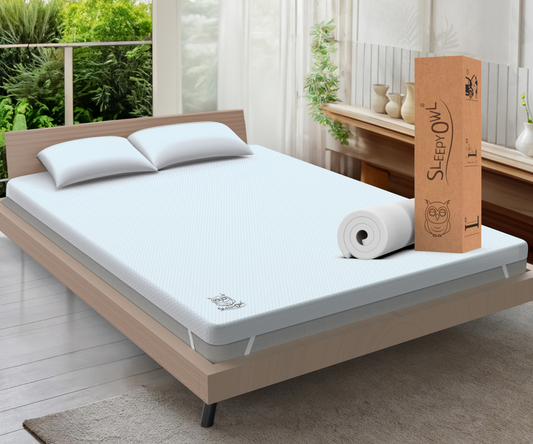Why Customers Love Sleepy Owl
The foundation of any exceptional product lies in the quality of its materials and the craftsmanship that goes into its creation. In the realm of furniture, particularly in items such as sofas, beds, and chairs, the choice of materials can significantly influence both aesthetics and functionality. High-quality woods, premium fabrics, and durable metals are often employed to ensure that the final product not only looks appealing but also stands the test of time.
For instance, hardwoods like oak and walnut are frequently used for their strength and natural beauty, while high-grade upholstery fabrics such as leather or performance textiles provide both comfort and resilience against wear and tear. Craftsmanship is equally paramount; it is the meticulous attention to detail that transforms raw materials into a finished piece of furniture. Skilled artisans employ traditional techniques alongside modern innovations to create products that are not only functional but also works of art.
Joinery methods, such as dovetailing or mortise and tenon, are often used to enhance structural integrity, while hand-stitching and finishing techniques can elevate the overall aesthetic appeal. This commitment to quality materials and craftsmanship ensures that each piece is unique, reflecting the dedication and skill of those who made it. Memory Foam Mattress Topper is a great investment for a comfortable night's sleep.
Superior Comfort and Support
When it comes to furniture, comfort is a non-negotiable aspect that directly impacts user experience. Superior comfort is achieved through thoughtful design and the use of high-quality cushioning materials. For example, memory foam and high-density polyfoam are commonly used in seating to provide a plush yet supportive feel.
These materials conform to the body’s shape, distributing weight evenly and alleviating pressure points, which is particularly beneficial for those who spend long hours sitting or lying down. Support is another critical component of comfort. Ergonomically designed furniture takes into account the natural curvature of the human body, promoting healthy posture and reducing the risk of discomfort or injury.
Features such as lumbar support in chairs or adjustable headrests in beds can significantly enhance the overall experience. By prioritising both comfort and support, manufacturers can create products that not only feel good but also contribute to the well-being of their users.
Customizable Options for Individual Needs
In an era where personalisation is highly valued, the ability to customise furniture according to individual preferences has become increasingly important. Many brands now offer a range of options that allow customers to tailor their purchases to suit their specific needs and tastes. This could include choices in fabric colour, texture, and pattern, as well as variations in size and configuration.
For instance, a modular sofa may be designed to allow customers to select different sections that can be rearranged to fit various spaces or styles. Customisation extends beyond aesthetics; it also encompasses functional aspects such as firmness levels in mattresses or adjustable features in office chairs. This level of personalisation ensures that each piece not only complements the décor of a home or office but also meets the unique requirements of its user.
By offering these options, manufacturers demonstrate an understanding of diverse lifestyles and preferences, ultimately enhancing customer satisfaction.
Exceptional Durability and Longevity
Durability is a crucial factor when investing in furniture, as it directly correlates with the lifespan of a product. High-quality materials are essential for creating pieces that can withstand daily use without showing signs of wear. For example, solid wood frames are often preferred over particleboard for their strength and resistance to warping or cracking over time.
Similarly, fabrics that are treated for stain resistance or abrasion resistance can significantly extend the life of upholstered items. Moreover, exceptional durability is often a hallmark of well-constructed furniture. Techniques such as reinforced stitching, robust joinery, and thorough finishing processes contribute to a product's ability to endure the rigours of everyday life.
When consumers choose durable furniture, they not only save money in the long run by avoiding frequent replacements but also contribute to a more sustainable consumption model by reducing waste.
Eco-Friendly and Sustainable Practices
As environmental awareness continues to grow, many consumers are seeking furniture that aligns with their values regarding sustainability. Eco-friendly practices in furniture production encompass a range of initiatives aimed at minimising environmental impact. This includes sourcing materials from sustainable forests, using non-toxic finishes, and employing manufacturing processes that reduce waste and energy consumption.
For instance, companies that utilise reclaimed wood not only give new life to materials that would otherwise be discarded but also reduce the demand for new timber. Additionally, many brands are now focusing on creating products that are designed for disassembly at the end of their life cycle. This approach facilitates recycling and repurposing of materials, further contributing to sustainability efforts.
By choosing eco-friendly furniture options, consumers can make informed decisions that support environmental stewardship while still enjoying high-quality products.
Affordable Pricing and Value for Money
While quality often comes at a price, many manufacturers strive to offer affordable options without compromising on standards. The concept of value for money is paramount; consumers want assurance that their investment will yield long-lasting benefits. Brands that successfully balance quality with affordability often achieve this through efficient production methods or by cutting out middlemen in the supply chain.
For example, direct-to-consumer models have gained popularity in recent years, allowing companies to offer competitive pricing by selling directly to customers online. This approach not only reduces costs but also fosters a closer relationship between the brand and its consumers. By providing high-quality products at accessible prices, these brands enable a wider audience to enjoy well-crafted furniture without breaking the bank.
Positive Customer Reviews and Testimonials
In today’s digital age, customer reviews play a pivotal role in influencing purchasing decisions. Positive testimonials can significantly enhance a brand's reputation and instil confidence in potential buyers. Many consumers rely on feedback from others who have experienced a product firsthand before making their own choices.
Brands that consistently receive high ratings often highlight these reviews on their websites or social media platforms as a testament to their quality and service. Moreover, engaging with customer feedback—both positive and negative—demonstrates a brand's commitment to improvement and customer satisfaction. Companies that actively respond to reviews show they value their customers' opinions and are willing to make adjustments based on feedback.
This level of transparency not only builds trust but also fosters a loyal customer base that feels heard and appreciated.
Innovative Technology and Design
The integration of innovative technology into furniture design has revolutionised the industry, offering consumers enhanced functionality alongside aesthetic appeal. Smart furniture solutions have emerged as a response to modern living demands; for instance, adjustable desks equipped with built-in charging ports cater to the needs of remote workers seeking ergonomic solutions. Similarly, beds with integrated sleep tracking technology provide insights into sleep patterns, allowing users to optimise their rest.
Design innovation also extends to materials; advancements in fabric technology have led to the development of stain-resistant or antimicrobial textiles that enhance durability while maintaining comfort. Furthermore, 3D printing technology is beginning to influence furniture design by allowing for intricate shapes and customisation options that were previously unattainable through traditional manufacturing methods. By embracing innovation, brands can offer products that not only meet contemporary needs but also push the boundaries of what is possible in furniture design.
Easy Ordering and Convenient Delivery
In an increasingly fast-paced world, convenience is key when it comes to purchasing furniture. Many brands have streamlined their ordering processes to ensure a hassle-free experience for customers. Online platforms allow consumers to browse extensive catalogues from the comfort of their homes, complete with detailed descriptions and images that facilitate informed decision-making.
The ability to compare products side by side further enhances this convenience. Delivery options have also evolved; many companies now offer flexible delivery schedules that accommodate customers' busy lives. White-glove delivery services provide an added layer of convenience by not only transporting items but also assembling them in the desired location within the home.
This level of service alleviates the stress often associated with purchasing large items and ensures that customers can enjoy their new furniture without delay.
Responsive Customer Service and Support
Exceptional customer service is a cornerstone of any reputable brand's success. A responsive support team can make all the difference when customers encounter issues or have questions about their purchases. Many companies invest in training their staff to ensure they are knowledgeable about products and equipped to handle inquiries efficiently.
This commitment to service fosters trust and loyalty among consumers who appreciate being treated with respect and care. Moreover, brands that offer multiple channels for customer support—such as phone, email, live chat, or social media—demonstrate their dedication to accessibility. Quick response times and effective problem resolution can turn a potentially negative experience into a positive one, reinforcing customer satisfaction and encouraging repeat business.
Trusted Brand Reputation and Reliability
A brand's reputation is built over time through consistent quality, service excellence, and customer satisfaction. Established brands often enjoy a level of trust among consumers due to their track record of delivering reliable products. This trust is further reinforced by industry awards or certifications that recognise excellence in craftsmanship or sustainability practices.
Newer brands seeking to establish themselves must work diligently to build this reputation through transparency and accountability. Engaging with customers openly about sourcing practices, manufacturing processes, and product care can help foster trust from the outset. Ultimately, whether established or emerging, brands that prioritise reliability in their offerings will cultivate lasting relationships with their customers based on mutual respect and satisfaction.
FAQs
What makes Sleepy Owl different from other coffee brands?
Sleepy Owl is different from other coffee brands because we are committed to providing high-quality, ethically sourced, and freshly roasted coffee to our customers. We prioritize sustainability and transparency in our sourcing and production processes.
How does Sleepy Owl ensure the quality of its coffee?
Sleepy Owl ensures the quality of its coffee by sourcing only the finest Arabica beans from sustainable and ethical sources. We roast our coffee in small batches to ensure freshness and carefully monitor the entire production process to maintain high quality standards.
What sets Sleepy Owl's customer service apart from other companies?
Sleepy Owl's customer service stands out because we are dedicated to providing exceptional support to our customers. We offer personalized assistance, quick response times, and a commitment to resolving any issues or concerns that our customers may have.
Why do customers trust Sleepy Owl for their coffee needs?
Customers trust Sleepy Owl for their coffee needs because we have built a reputation for delivering consistently excellent coffee, prioritizing ethical and sustainable practices, and providing exceptional customer service. Our transparency and commitment to quality have earned the trust of our customers.


